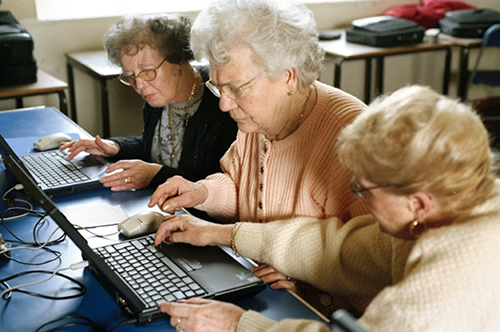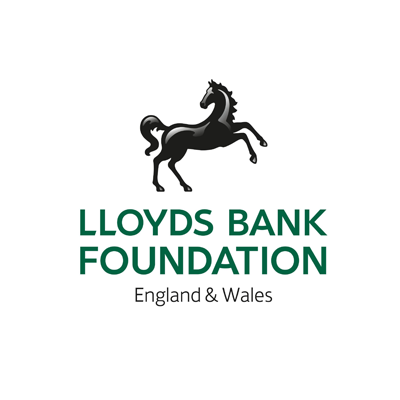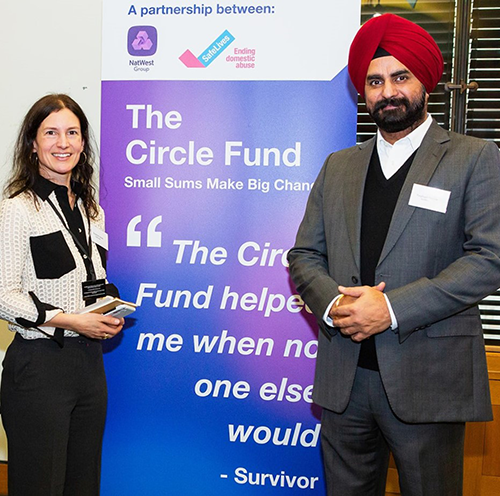Grantmaking and Funding 2024 winners: East End Community Foundation
Why they won
- Outcomes: More than 150 people are now claiming benefits they were previously missing out on
- Collaboration: The Foundation consulted with potential community partners and the local authority when designing the programme
- Sustainabiity: Delivering advice training to partner organisations will ensure that local pensioners continue to receive advice into the future. Also, those that are now claiming new benefits will continue to receive these
- Value for money: The return on investment for the benefits element is 4:1
The needs of older people in disadvantaged communities are often overlooked. This is nowhere truer than in the east end of London, where 44% of older residents of Tower Hamlets live in income-deprived households, alongside 41% in Hackney and 37% in Newham – the highest levels in the UK. Furthermore, each year £32m of the government’s Pension Credits benefit goes unclaimed.
 Life Chances is East End Community Foundation’s (EECF) collective giving campaign that encourages collaboration across the private and public sectors, and grassroots charitable organisations, to tackle specific social issues in the east end. The Tackling Pensioner Poverty strand of Life Chances was designed to focus on raising pensioner income to lift older people out of poverty.
Life Chances is East End Community Foundation’s (EECF) collective giving campaign that encourages collaboration across the private and public sectors, and grassroots charitable organisations, to tackle specific social issues in the east end. The Tackling Pensioner Poverty strand of Life Chances was designed to focus on raising pensioner income to lift older people out of poverty.
Before launch, EECF began by gauging the appetite of potential grant recipients and donors through roundtable discussions and one-to-one meetings. Tower Hamlets Council were also engaged, and produced a Pension Credits uptake ‘heatmap’ that enabled groups to target
their approach.
The insights resulted in the formulation of a two-pronged approach: advice to improve take-up of benefits; and improving digital skills. Meetings with potential donors emphasised the need for a three-year funding commitment, operating an initial one-year pilot in Tower Hamlets. EECF identified a budget of just over £80,000 for this.
With funding secured, three local community groups were awarded grants of up to £20,000 for staff and overhead costs and were provided with specialist advice training. Direct project delivery commenced in January 2023.
Since then, more than 150 older people have been provided with benefits advice, helping them to secure over £400,000 of previously unclaimed welfare benefits – a return on investment of 4:1, and a total uprate of £3m if the claimants continue claiming for 10 years.
The digital literacy programme has supported 136 people and is on target to reach 270.
The success of the scheme has resulted in an increase in funding, enabling EECF to increase the grant budget to £100,000 and extend the scheme to the London borough of Newham.
Charity Awards judge Sharika Sharma, head of business development at CCLA, said the EECF was tackling the very serious problem of pensioner poverty with a project that would have a lasting social benefit for those affected.
Daniel Chan, senior manager at PwC, commended the targeting of a specific, underserved group, the impressive return on investment and the innovation in the idea.
CC Reg no. 1147789
Lloyds Bank Foundation for England and Wales
In a bid to tackle the systemic discrimination faced by minoritised ethnic and disabled communities, the Lloyds Bank Foundation has taken proactive and ambitious action to challenge and change structural inequity in its funding. It has committed 50% of its core funding budget to support these groups from 2022 to 2026, equating to £23m in total across 300 grants distributed through its Racial Equity and D/deaf and disabled funding programmes. For the first time, people with lived experience of the issues form the majority of the decision-making panel, and are paid for their contribution.
SafeLives
Existing funds for survivors of domestic abuse are often inflexible and onerous, with frontline services unable to effectively support survivors and their families. SafeLives used a £1m donation from Natwest to create the Circle Fund which provides annual grants of up to £2,500 for domestic abuse services to distribute to survivors. Through the fund, 137 frontline services have supported over 4,000 survivors of domestic abuse, reaching some of the most marginalised groups in society. The success of the scheme has helped SafeLives secure a further £1m from Natwest to fund the programme for another three years.


